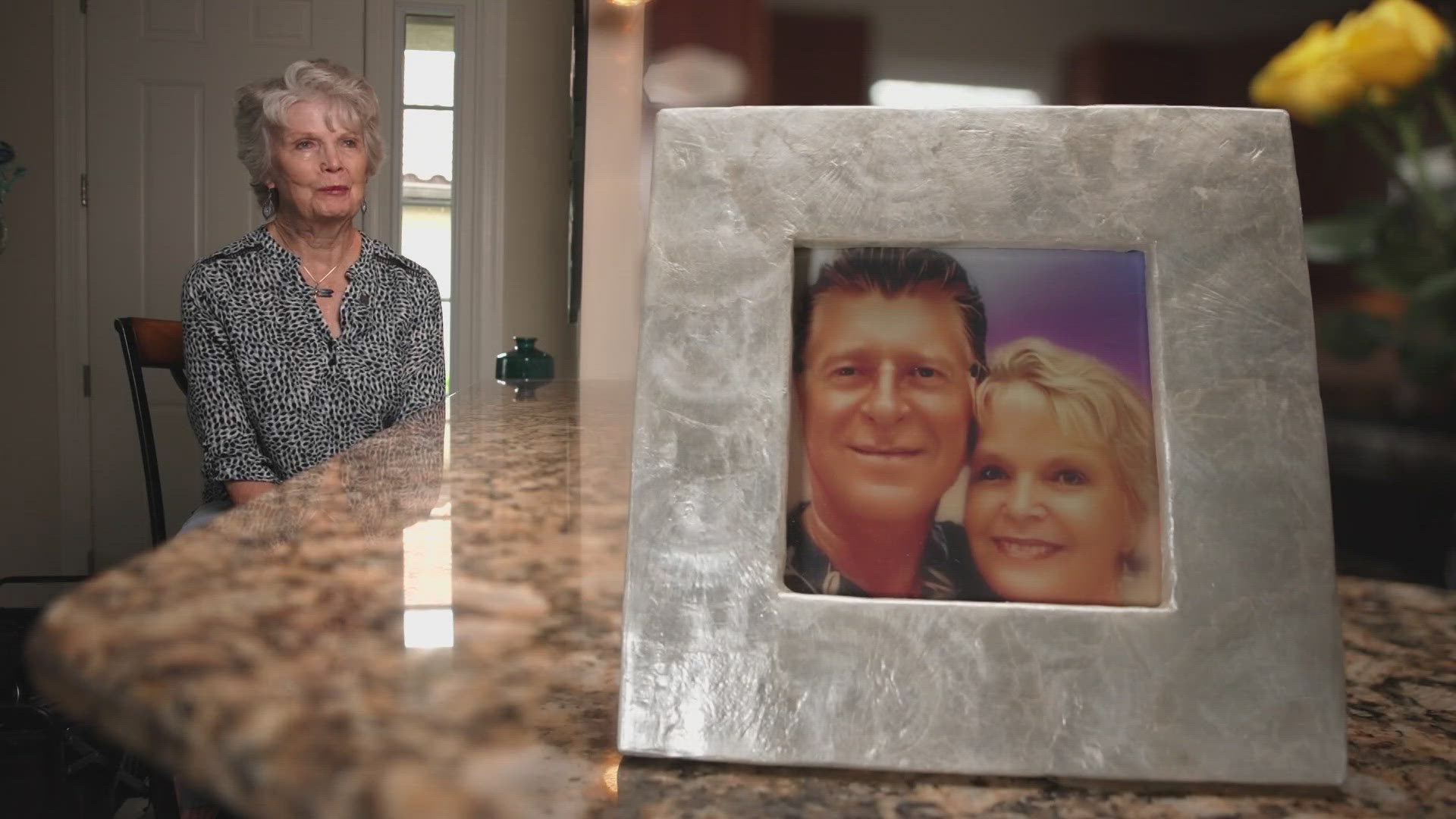Unchecked: Lax home health aide laws put Florida’s sick and elderly at risk
Florida does not license independent home health aides or require background checks to protect families from bad behavior.
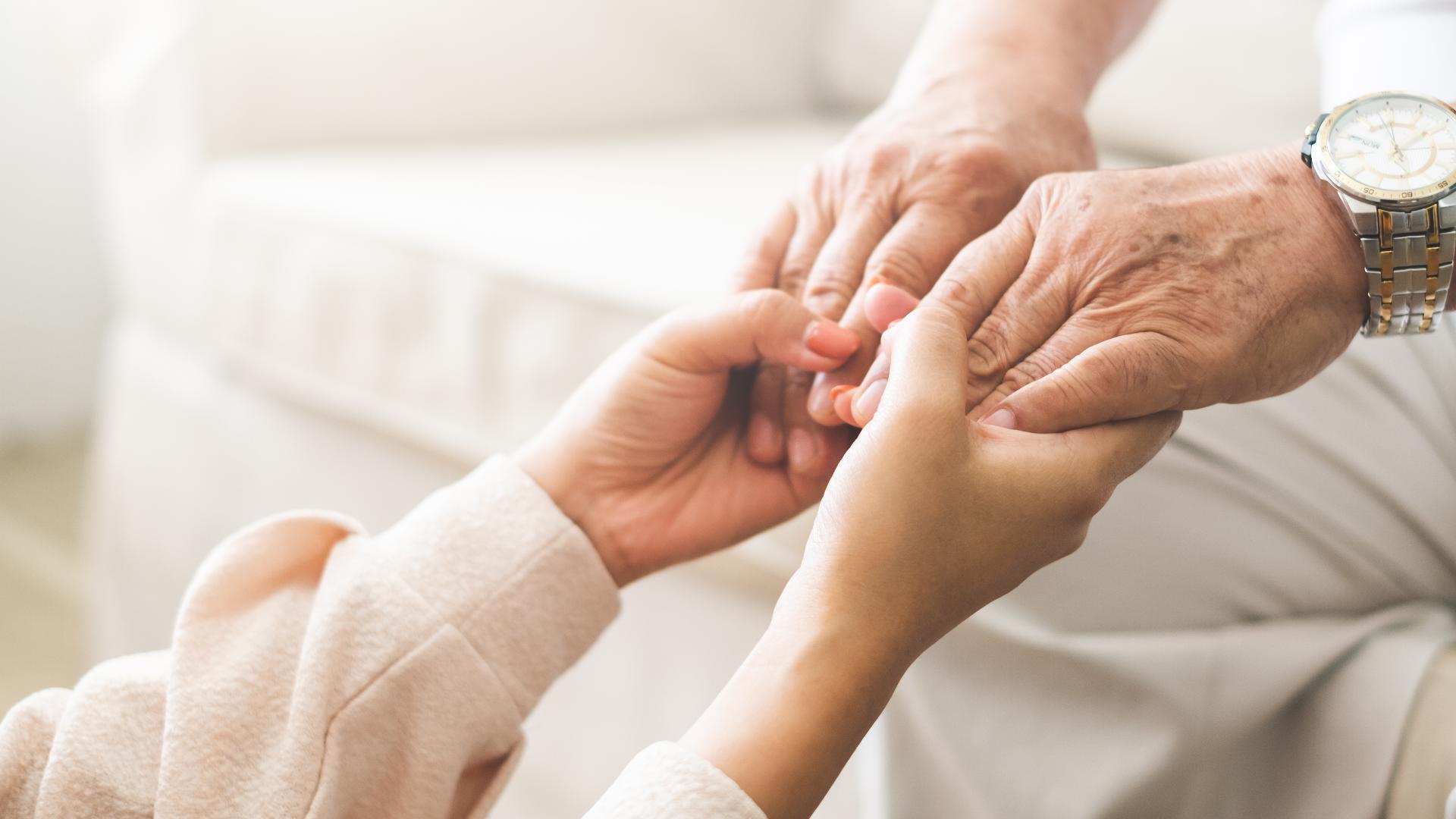
When you hire a professional to care for a sick or aging loved one, you shouldn’t have to welcome a caregiver with a criminal record into your home. But 10 Investigates uncovered gaps in Florida’s law that allow backgrounds of independent home health aides to go completely unchecked.
Unregulated No background checks for independent home health aides

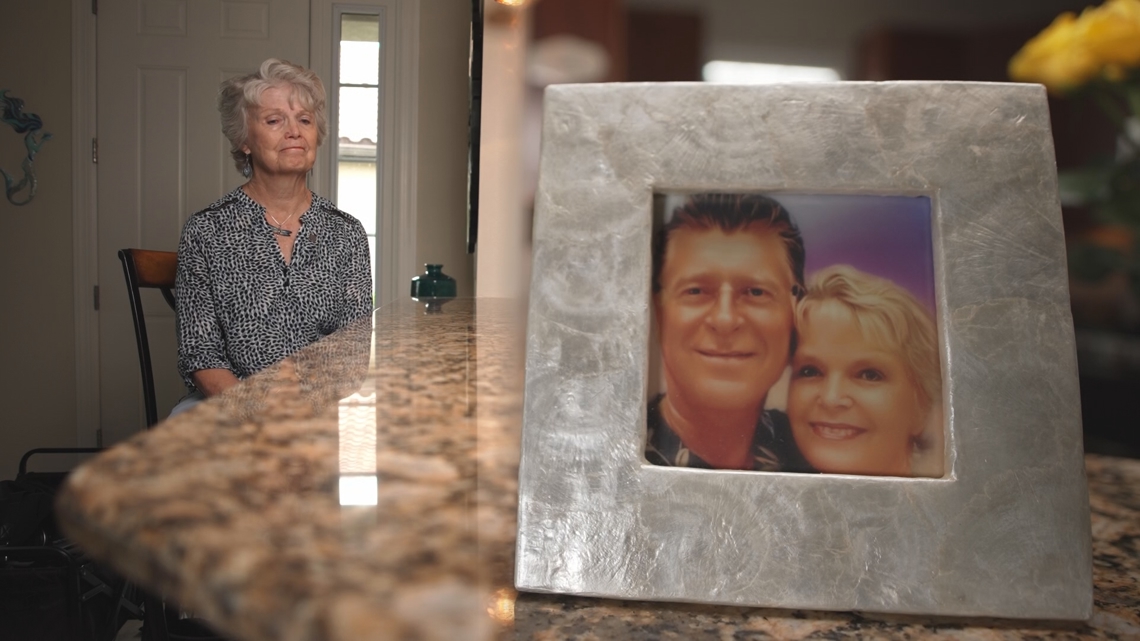
For the weeks Sherisa Powell Stackhouse worked as a home health aide for Bruce Barber while he battled a brain tumor that would eventually claim his life, his wife had no idea Stackhouse had been convicted in Manatee County for stealing from people’s homes.
In one case, a judge sentenced Stackhouse to probation for stealing jewelry from a woman she was caring for in Hillsborough County. Investigators found she later sold the valuables at a Pawn Shop in Manatee County.
In another case, she also faced probation for forging a check taken from a woman’s home.
“I would not have hired her if I had known that,” said Sue Barber, who accuses Stackhouse of keeping a nearly $3,000 refundable deposit after Bruce passed.
The Manatee County Sheriff's Office said it could not file charges because a deposit dispute is a civil matter. But Stackhouse could still be breaking the law.
While Stackhouse told 10 Investigates she is an independent contractor who doesn't need licensing, her contract with Sue identifies her home health business as an agency. The Agency for Healthcare Administration (AHCA), which oversees home health agencies, said she does not have a license for that.
This led 10 Investigates to uncover that while the AHCA requires home health agencies to background check their workers and have proper licenses to operate, independent home health aides have no such demands from the state.
RELATED: Concerns over Care.com vetting process after Palmetto woman says she lost thousands of dollars
Florida doesn't require background checks for home health aides who don't work for licensed agencies. This safeguard could have prevented caregivers like Stackhouse from working in Sue’s home.
“You have to do all of the background preparation in order to hire that person,” said Denise Bellville, executive director of the Home Care Association of Florida. “You become the employer.”
It’s a responsibility many are unaware of when searching for help with a loved one in need. It can be daunting and overwhelming.
Underutilized Gaps in background check policies could hurt Floridians.

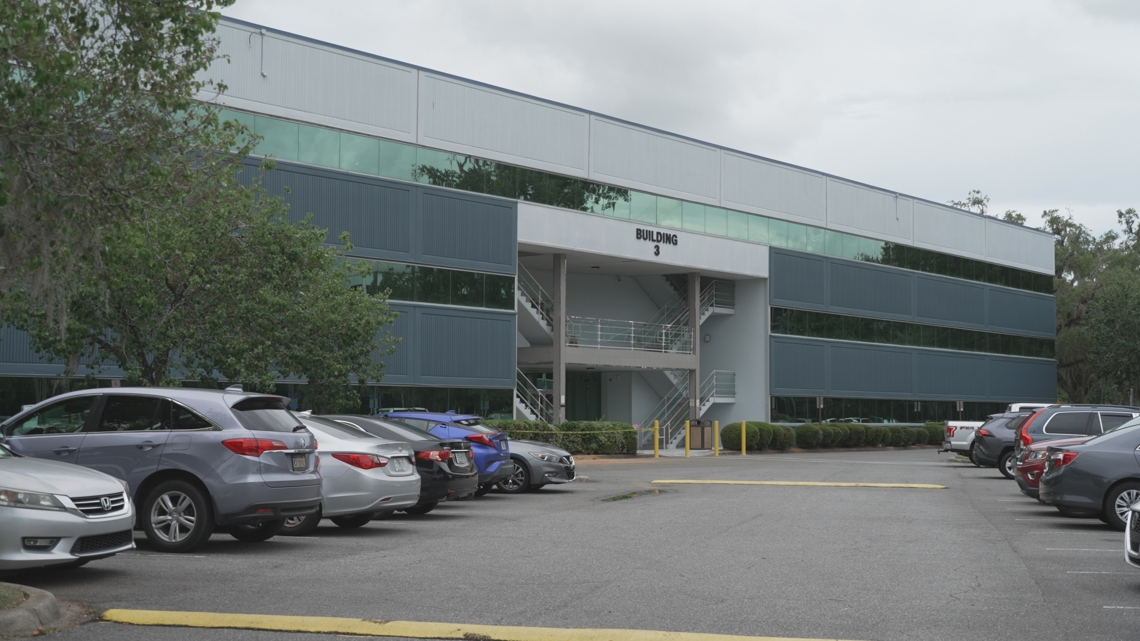
In Florida, the Agency for Healthcare Administration oversees home health agencies. The state requires agencies to be licensed, and unlike independent home health aides, agency employees must receive extensive background checks.
The Florida Department of Law Enforcement refers to those in-depth reviews as level-two background checks, which search state and federal databases for arrests and convictions. Some searches also include fingerprints. FDLE says these checks are for “employees designated by law as holding positions of responsibility or trust.”
Level-two checks also allow employers to be notified immediately if someone is arrested or convicted. A level-one check is mostly limited to state records.
However, few consumers know the difference between the two, or how to get an advanced check.
“It would be nice if there would be a way for people to know how to check into the background of someone,” Sue said.
During Bruce Barber’s final days, Sue says she was satisfied with the care Bruce received from Stackhouse and another woman who worked with her. She says there were no hints about Stackhouse’s criminal past.

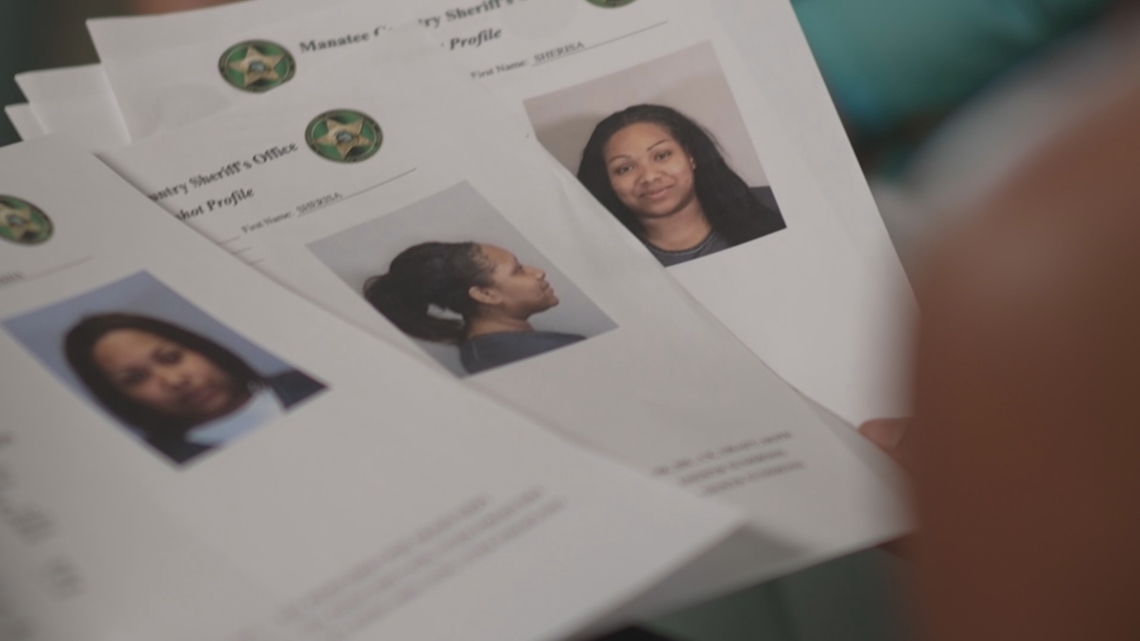
That’s even though Sue found Stackhouse through Care.com, a national online platform that states on its homepage, “100% of caregivers are background checked before you can hire.” Stackhouse got through the system anyway.
"We are troubled by this incident and sincerely regret that this family experienced this, particularly while mourning the loss of a loved one," a Care.com spokesperson previously told 10 Investigates. "Our records do indicate that this individual has attempted to have profiles on our platform over the years, using various aliases. Our safety protocols, which include a CareCheck background check be completed before communicating with families, enabled us to block these efforts. This individual then attempted to circumvent our protocols by enrolling as a care business with an entirely unrelated name."
Sue only learned of Stackhouse’s criminal history after reaching out to 10 Investigates for help getting her nearly $3,000 deposit returned when Bruce died.
Stackhouse declined an interview but insisted over the phone she refunded Sue’s deposit. Stackhouse offered to show proof, but 10 Investigates never heard from her again.
Care.com refunded Sue’s money after 10 Investigates contacted the company. A spokesperson also said it shut down any profiles related to Stackhouse after our inquiries.
While Care.com’s background check assurances failed Sue in this instance, the level two checks Florida requires of home health aides employed by home health agencies would have flagged the state that Stackhouse had a criminal past.
“Unless something is done about it, it's just going to continue,” Sue said. “So [there should be] some type of a process that the consumer can be aware of and that the state can monitor.”
Badges and background checks Palm Beach County’s solution to closing gap

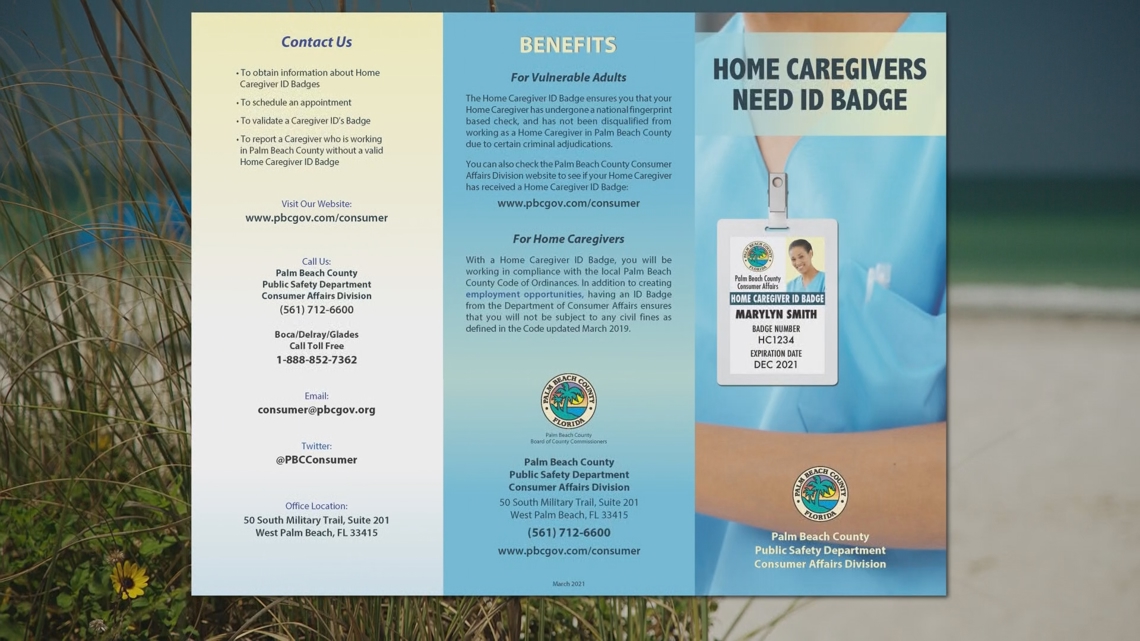
Palm Beach County long ago recognized the need to better vet independent home health aides. In 2015, the county passed an ordinance that in 2016 created a registry requiring all caregivers to undergo level-two background checks. The results would qualify or disqualify them for a caregiver badge.
“The level-two background check is so important because basically, it screens any individual that's been arrested and convicted of a crime…either in Palm Beach County or in anywhere really,” Palm Beach County Public Safety Director Stephanie Sejnoha said. “Once they're arrested, their license is suspended and… we update that online. So, anybody that is hiring them can go on our database and look to see if their badge is valid or not.”
Since 2016, Palm Beach County has licensed more than 32,500 caregivers. Sejnoha said it costs the county about $200,000 a year using existing employees.
She also calls the program “very successful.”
“They're being monitored, which is a good thing, and it's also to help curtail any abuse or neglect or exploitation that's happening here in Palm Beach County,” she said. “It’s another level of protection that we have for our residents here in Palm Beach County.”
It’s also a program she thinks should be rolled out statewide.
“I think that layer of protection is really important to our most vulnerable population, so I think that it would be a good statewide requirement,” she said, adding that her only concern would be for small, rural counties that might not have the money or manpower for implementation.
“But I think the, the return on investment is important, and they also can charge a fee that would hopefully generate enough revenue to offset the cost of the program,” she said. “Our program fees are fairly low.”
A badge and background check for independent/private home caregivers is $100. Those working for an agency pay a fee of $30. The badge does not denote a training certification — just that the caregiver is eligible to work in the county.
Nurses, nursing assistants and some therapists are among those who are exempt from needing a caregiver badge. Certain family members and nonprofits are exempt as well.
“I think it’s a good tool,” she said. “We've closed that gap. So, all home caregivers, whether you work for an agency or whether you work independently are required to have a level-two background check here in Palm Beach County.”
It’s a program Sue says she would support if it meant saving others the trouble she endured.
“I think that's a first step in the right direction because it takes the burden of that off of a person who is more worried about taking care of their loved one during their terminal illness,” she said. “I don't want this to happen to anybody else.”
Opportunities for statewide change Local lawmaker says Palm Beach badge program could be a model to expand.

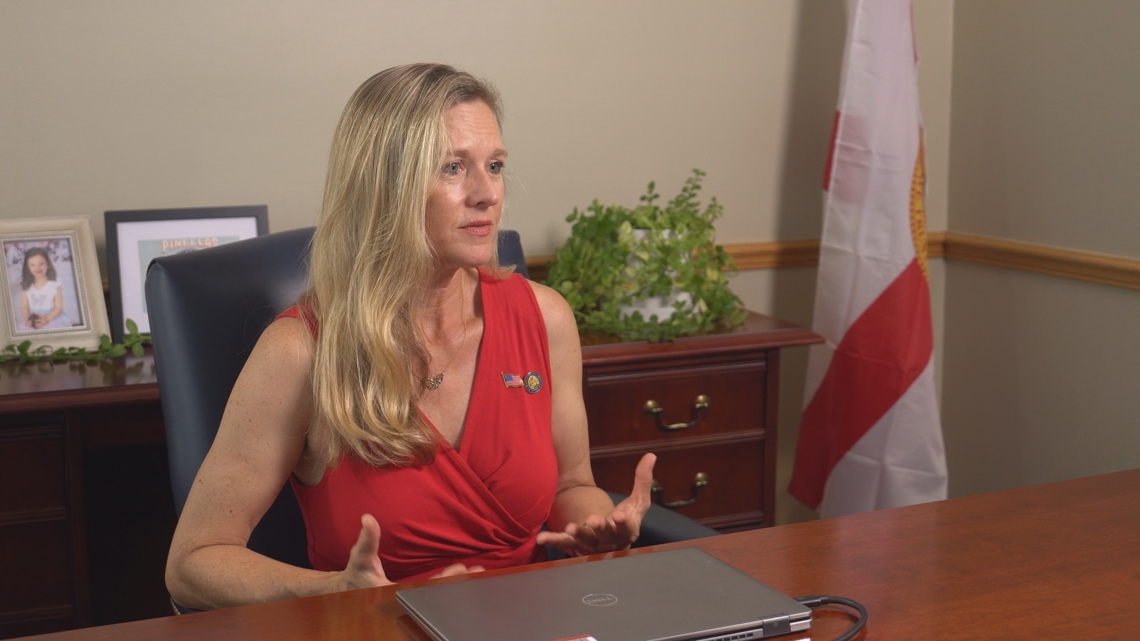
The eight-year success of the Palm Beach caregiver badge program is an effort Rep. Lindsay Cross (D-St. Petersburg) says the state could consider expanding.
“The example from Palm Beach County that you provided is a great example of looking at ways to kind of strengthen some of the requirements, have more rigorous background checks so that if people are getting someone, they know that they've gone through those levels of screening,” she said. “I think something like that could be explored at the state level.”
Cross says an expansion of the program or any additional state requirements would need more vetting and buy-in from other legislators. Cross adds that any new policies should not overburden the home health industry.
“It's going to be discussions that we have to have with committee chairs in some of those health policy committees to talk about, again, how we find that balance,” she said. “But again, we need to make sure that people have confidence that their loved ones are going to be safe and taken care of.
In 2018, lawmakers introduced legislation that would allow local municipalities to create their own caregiver registries, but the bills did not pass.
“It didn't make it through any committees, which means that it was not a popular policy at that time,” Cross said. “Since then, I think we've seen an expansion of some of these home health aides and there's interest I know from the state in being able to provide care where people live. You know, most people don't want to spend the last years of their life in an assisted living facility.”
It’s one of many reasons why leaders in Palm Beach County encourage legislators to explore expanding the program to bolster accountability for those caring for Florida’s vulnerable populations.
“It's another level of protection that we have for our residents here in Palm Beach County,” Sejnoha said.
Protecting yourself Best practices to vet home health aides

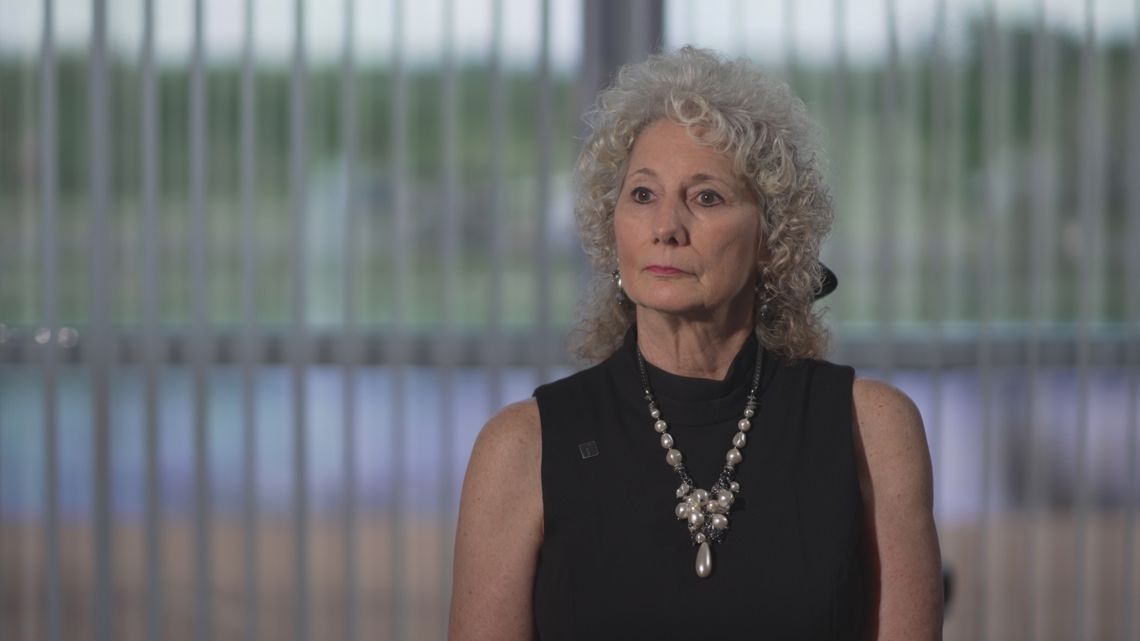
Until there are better statewide requirements for licensing and background-checking home health aides, the Home Care Association of Florida offers several recommendations for vetting help.
HCAF Executive Director Denise Bellville says it’s best to consider hiring from a licensed home health agency if insurance and budget allow.
“Oftentimes, even in a website, it will show that they are licensed in this state. We are required, if you are advertising for your agency to have your license number on your advertisement,” she said. “It should always say license number and several numbers to follow. If that license number is not on there, then I would have second thoughts about hiring someone from that service.”
Bellville says if a company is advertising as a home care agency without a license number, it could mean the business doesn’t have level-two screenings for employees.
If hiring an independent aide, there is more risk as consumers are not guaranteed level-two background checks.
“So, for an individual who just wants to be hired by a consumer, there is no regulation to that level two. So, in that instance, that would be up to the consumer who's hiring them to run those background screenings,” Bellville said.
Something Sue wishes she had known sooner. “I don't want this to happen to anybody else,” she said.
Emerald Morrow is an investigative reporter with 10 Tampa Bay. Like her on Facebook and follow her on Bluesky and X. You can also email her at emorrow@10tampabay.com.


